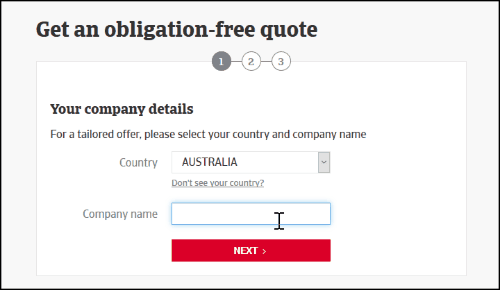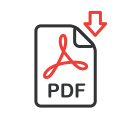One of the most irritating tasks of operating a business is probably collecting late payments.There are always customers who don't pay no matter how many reminders you send. |

|
You may want to take them to court, but filing lawsuits against every late payer is costly and hardly practical. Before taking legal action, it's worth taking one step back to move two steps forward. You can consider negotiating on several key aspects of the payment terms to reach a compromise, which is reasonable enough for your customers to pay and acceptable enough that you don't lose too much revenue.
You can combine and negotiate some aspects together, or one at a time. The key is being diplomatic while being insistent on settlement terms. As long as the new terms align with your company's policy, negotiating with the customers carrying default risk helps increase your chance of collections.
1. Payment methods |

|
Your customers may happen to use payment methods that you don't accept. Some may prefer bank transfers or cheques, while others use debit or credit cards.
If you find out that payment methods are the only thing preventing them from making payments to you, consider negotiating over alternative payment methods so that your customers can settle their invoices.
2. Disincentives |

|
There are many businesses providing disincentives for customers to pay late. An example is adding late fees to the payment terms in the contracts and having the customers sign them. The late fees could be one-off or accruing at a certain percentage.
When you use such disincentives, you may hope that the customers would want to pay promptly. Even if they don't, the extra money would cushion the impact on your margins. Although the idea of disincentives seems promising, they don't always work out well and are often viewed as a contentious subject. In many cases, you'll only realise that when you inform your customers they've incurred disincentives, such as late fees, and express your intention of collecting them along with the outstanding amount. It's quite likely that you'll provoke heated disputes instead of walking away with the outstanding amount plus the penalties.

|
So if your customers are in temporary financial distress and your enforcement of penalties has yielded no results, consider negotiating on waiving the penalties in exchange for immediate payments. |
3. Incentives |

|
There are also many businesses offering incentives for customers to pay early. An example is giving discounts when the customers pay before the due dates.
When you adopt such incentives, you may think that they would encourage prompt payment practices. However, more often than not, they put a strain on your cash flow.
Customers who are going to pay late tend not to pay earlier just for discounts, and customers who are going to pay on time tend to take advantage of the discounts by paying earlier. So you could end up losing revenues from customers who would pay anyway, as well as from customers who would default on their payments.

|
A better way to make use of incentives is only negotiating over discounts when your customers have been unresponsive to your previous collections attempts and they agree to make payments instantly. |
4. Due dates |

|
If your customers and their accounts payable operate according to certain cycles, there is a high chance that you'll need to attend to those cycles when collecting the long overdue invoices.
You can negotiate with your customers on an extension to the due dates of the outstanding invoices. Instead of choosing from standard periods, such as 30 days or 60 days, try to settle on time frames that follow your customers' operating cycles and are suitable for you.
By agreeing on new due dates, you reduce uncertainty over your customers' payment behaviour and your customers know the timelines in which they need to get their accounts payable in order.

|
To avoid turning extending payment periods into a norm, you'll need to set conditions on which you would open the negotiation. For example, the outstanding amounts need to exceed certain thresholds, your customers have been unresponsive to your previous collections attempts, and they agree to stick to the new due dates. |
5. Payment plans |

|
If your customers have serious cash flow issues and inform you that they can't pay the outstanding invoices in full, the best course of action is allowing them to pay in instalments by developing payment plans with them.
Accepting what can be collected in the short term through payment plans is better than having to write the debts off if your customers' liquidity worsens.
When you put a payment plan in place, consider the following.
- The time frames should be long enough to enable your customer to make the instalment payments, but not too long that they put a burden on your cash flow
- Your customer should make a partial payment when the payment plan is finalised to show that they're willing to honour the agreement
- Your customer can give you cheques or bills of exchange according to the scheduled milestones when the payment plan is finalised
- The detailed payment plan and other relevant terms should be included in a contract signed by you and your customer. This can serve as an acknowledgement of debt if you pursue legal action later.
Because every customer and every invoice is unique, sometimes you only need to negotiate one of the five aspects above and sometimes you need to go about discussing the payment terms more than a few times.
If you have many customers falling into the category of late payers repeatedly, negotiating with each of them every time can be troublesome. With limited resources, not many businesses can afford to go through the process of "assessing, negotiating, and following up" time and time again.
Besides, you want to be careful and not offer your customers too favourable payment terms. One-off exceptions shouldn't turn into standard practice. Unreasonable compromises shouldn't be made at the expense of your cash flow.
If it becomes too time-consuming to collect your long overdue invoices, or your negotiations haven't resulted in payment, consider getting external help.
An experienced and professional collections agency with the right approaches can encourage your customers to pay, while maintaining your business relationships.
With Atradius Collections, you can use the online service to:
- Know right away how much it costs to collect your outstanding invoices. Get a free quote here.
- See real-time updates on the collections progress
- Get paid as soon as your customers pay their outstanding invoices
You've worked hard on creating good invoices. Let the experts work hard on collecting them for you.

